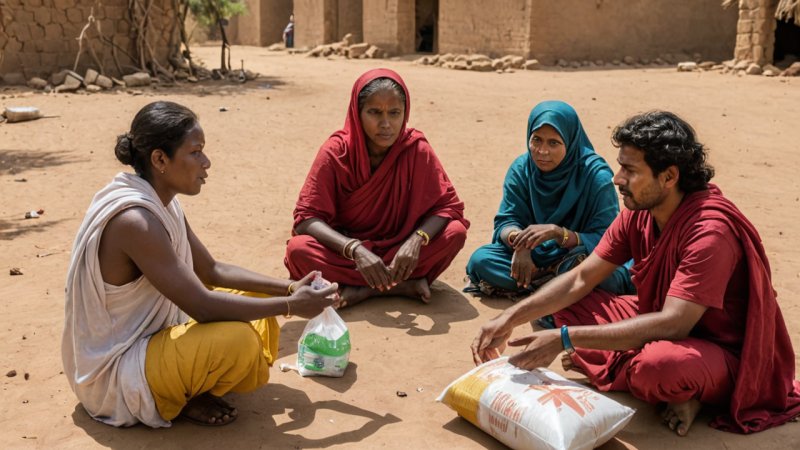Humanitarian aid plays a crucial role in alleviating suffering and providing essential services to communities affected by crises. However, the ethics surrounding this intervention can be complex, especially when it comes to respecting the sovereignty of nations. This article explores the delicate balance between providing necessary assistance and honoring the autonomy of affected states.
At the heart of humanitarian aid is the principle of humanity, which emphasizes the need to alleviate human suffering wherever it is found. Yet, this principle often clashes with the concept of national sovereignty. When crises occur, such as natural disasters or conflicts, external actors may rush to provide aid, but their involvement can sometimes be perceived as an infringement on a nation's sovereignty. This raises critical questions: How do we ensure that aid is delivered effectively and ethically? What measures can be taken to respect the rights and dignity of the affected communities?
One of the key tenets of ethical humanitarian aid is the need for consent. It is essential for aid organizations to seek the approval of the local government before intervention. This not only helps to maintain respect for sovereignty but also fosters collaboration and trust between aid agencies and local authorities. Furthermore, working with local governments can enhance the effectiveness of aid by ensuring that it aligns with the community's needs and priorities.
Another important aspect is accountability. Humanitarian organizations must be transparent about their operations and engage in open communication with affected populations. This can involve setting up feedback mechanisms that allow community members to voice their concerns and preferences regarding the aid they receive. By prioritizing the perspectives of those they serve, aid organizations can ensure that their interventions are not only respectful but also culturally sensitive.
Moreover, it is vital to recognize that the effectiveness of humanitarian aid can be compromised by political agendas. Sometimes, aid is used as a tool for political leverage, which can lead to mistrust and resentment among the very communities it aims to help. Therefore, it is crucial for humanitarian actors to remain neutral and impartial, focusing solely on alleviating suffering and providing support based on need rather than political affiliation.
In conclusion, the ethics of humanitarian aid requires a careful balance between intervention and respect for sovereignty. By seeking consent, ensuring accountability, and maintaining neutrality, aid organizations can navigate these ethical dilemmas effectively. It is essential for individuals and organizations involved in humanitarian efforts to remain committed to these principles, as they not only enhance the effectiveness of aid but also uphold the dignity of those they aim to serve. In a world where crises are increasingly common, understanding and addressing these ethical considerations is vital for fostering a more compassionate and just global community.






